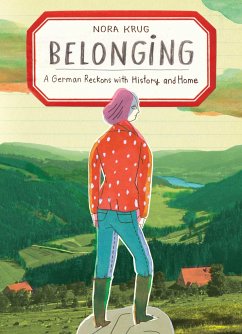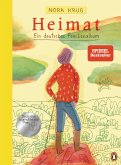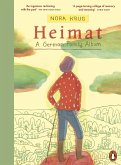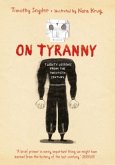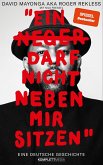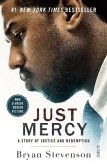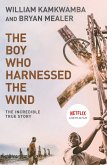_ Winner of the National Book Critics Circle Award _ Silver Medal Society of Illustrators _
_ Named a Best Book of the Year by The New York Times, The Boston Globe, San Francisco Chronicle, NPR, Comics Beat, The Milwaukee Journal-Sentinel, Kirkus Reviews, and Library Journal
This "ingenious reckoning with the past" (The New York Times), by award-winning artist Nora Krug investigates the hidden truths of her family's wartime history in Nazi Germany.
Nora Krug was born decades after the fall of the Nazi regime, but the Second World War cast a long shadow over her childhood and youth in the city of Karlsruhe, Germany. Yet she knew little about her own family's involvement; though all four grandparents lived through the war, they never spoke of it.
After twelve years in the US, Krug realizes that living abroad has only intensified her need to ask the questions she didn't dare to as a child. Returning to Germany, she visits archives, conducts research, and interviews family members, uncovering in the process the stories of her maternal grandfather, a driving teacher in Karlsruhe during the war, and her father's brother Franz-Karl, who died as a teenage SS soldier. In this extraordinary quest, "Krug erases the boundaries between comics, scrapbooking, and collage as she endeavors to make sense of 20th-century history, the Holocaust, her German heritage, and her family's place in it all" (The Boston Globe). A highly inventive, "thoughtful, engrossing" (Minneapolis Star-Tribune) graphic memoir, Belonging "packs the power of Alison Bechdel's Fun Home and David Small's Stitches" (NPR.org).
_ Named a Best Book of the Year by The New York Times, The Boston Globe, San Francisco Chronicle, NPR, Comics Beat, The Milwaukee Journal-Sentinel, Kirkus Reviews, and Library Journal
This "ingenious reckoning with the past" (The New York Times), by award-winning artist Nora Krug investigates the hidden truths of her family's wartime history in Nazi Germany.
Nora Krug was born decades after the fall of the Nazi regime, but the Second World War cast a long shadow over her childhood and youth in the city of Karlsruhe, Germany. Yet she knew little about her own family's involvement; though all four grandparents lived through the war, they never spoke of it.
After twelve years in the US, Krug realizes that living abroad has only intensified her need to ask the questions she didn't dare to as a child. Returning to Germany, she visits archives, conducts research, and interviews family members, uncovering in the process the stories of her maternal grandfather, a driving teacher in Karlsruhe during the war, and her father's brother Franz-Karl, who died as a teenage SS soldier. In this extraordinary quest, "Krug erases the boundaries between comics, scrapbooking, and collage as she endeavors to make sense of 20th-century history, the Holocaust, her German heritage, and her family's place in it all" (The Boston Globe). A highly inventive, "thoughtful, engrossing" (Minneapolis Star-Tribune) graphic memoir, Belonging "packs the power of Alison Bechdel's Fun Home and David Small's Stitches" (NPR.org).
"A mazy and ingenious reckoning with the past ... Krug is a tenacious investigator, ferreting out stories from the wispiest hints - a rumor or a mysterious photograph ... Even as she fills in the missing details, the stories are left open-ended; there is no rush to condemn or redeem, merely to get as close to the truth as possible ... The wisdom of this book is that it does not claim to [wash away stains, mend scars, make whole.] The notion of 'consolation' is one I suspect Krug would regard with suspicion. What she seems in pursuit of is a better quality of guilt ... That's where honor seems to lie, this book suggests: in the restless work of remembering, in the looking again, the recalibration and the revision. In getting the whole picture, and getting it right."
-New York Times
"Krug erases the boundaries between comics, scrapbooking, and collage as she endeavors to make sense of 20th-century history, the Holocaust, her German heritage, and her family's place in it all."
-The Boston Globe, Best Books of 2018
"In this evocative graphic memoir, Krug wrestles with her family's ties to Nazi Germany and the weight of that history."
-Time, 10 Best Nonfiction Books, Honorable Mention
"Krug has written a thoughtful, engrossing graphic novel that is part scrapbook, part memoir, delving deep into her family's history and trying to find blame or exoneration. In the process, she tells the story of an entire generation."
-Minneapolis Star-Tribune, Best of 2018
"In her extraordinary graphic memoir [Belonging], Krug dissects antisemitism in her own family's history and Germany's national guilt over the Holocaust - and the country's recent far-right backlash. ... The curious appeal of Krug's graphic memoir is that it never fully loses itself in the act of storytelling but constantly stops to turn over and reassess the means at its disposal."
-The Guardian
"Remarkable."
-The Observer
"A highly original and powerful graphic novel that works on many levels. ... a book that is as informative as a history and as touching as a novel."
-Financial Times
"Belonging suggests that the only way to authentic reckoning is through our own shame...Krug does not perform condemnation, but she lets story work through juxtaposition...shame and love [are] bound, ever next to each other in Krug's family inheritances...Reading Belonging was like reading my own history's shadow. Krug is not looking for heroes or villains. She does not recount the past to ask for pity or pardon, but so she can walk into a new life, as unbroken and unburdened as possible."
-Moment
"Pick up Nora Krug's reverberant graphic memoir, Belonging, and be prepared to lose yourself for hours in this unstinting investigation into her conflicted feelings about being German and her family's role in the Holocaust. In its searching honesty and multi-layered, visual and verbal storytelling, it packs the power of Alison Bechdel's Fun Home and David Small's Stitches... Krug writes about mending and reparations, but she doesn't let herself-or readers-lapse into complacence."
-NPR.org
"Reading Nora Krug's Belonging is like watching a mind unfold in front of you...There is something unbelievably generous about the way [Krug] offers these bits of history to us. The story isn't brought to us as an olive branch or a request for forgiveness for her family. It's an open-ended question. This is perhaps why the graphic memoir/collage medium is the perfect one in which to tell this story; there is no posturing or justification or attempt at explanation. She can leave us with an image and let us sit with the complicated discomfort. We join her in the midst of her reckoning."
-Lit Hub
"In her profound and dense illustrated memoir Belonging: A German Reckons With History And Home, illustrator Nora Krug examines her national identity and her family's history to try to explain why Germans are the way they are by delving into the Hitler-era questions she has about her own family ... Krug's book is as valuable as it is personable, a reminder that humans are the ones living through history and that their lives seldom live up to the binary demands of our right or wrong way of thinking."
-Comics Beat
"Radical ... a dedication, not a reckoning, but one that doesn't avoid horror in the slightest. ... accessible and complex at the same time."
-Berliner Zeitung
"[Nora Krug's] graphic memoir is more of a graphic statement, a snapshot not only of her own family history, but also of the reality of possibilities for any type of storytelling about cultural heritage."
-Frankfurter Allgemeine Zeitung
"One of the most peculiar books I've ever held in my hands. ... an intelligent, visually wonderfully opulent picture book for adults. ... [Belonging] by Nora Krug represents a form of self-ascertainment, of finding one's position, and a moral compass. Nora Krug's autobiographical search for traces is differentiated, intelligent and sublime, both in its images and in its words, and she thus creates the possibility of the book itself becoming a Heimat."
-ARD Druckfrisch
"A great piece of art with a great narrative power."
-SWR2 Lesenswert Quartett
"A masterpiece of a narrative - as touching as a novel, as deep as a non-fiction book."
-Stern
-New York Times
"Krug erases the boundaries between comics, scrapbooking, and collage as she endeavors to make sense of 20th-century history, the Holocaust, her German heritage, and her family's place in it all."
-The Boston Globe, Best Books of 2018
"In this evocative graphic memoir, Krug wrestles with her family's ties to Nazi Germany and the weight of that history."
-Time, 10 Best Nonfiction Books, Honorable Mention
"Krug has written a thoughtful, engrossing graphic novel that is part scrapbook, part memoir, delving deep into her family's history and trying to find blame or exoneration. In the process, she tells the story of an entire generation."
-Minneapolis Star-Tribune, Best of 2018
"In her extraordinary graphic memoir [Belonging], Krug dissects antisemitism in her own family's history and Germany's national guilt over the Holocaust - and the country's recent far-right backlash. ... The curious appeal of Krug's graphic memoir is that it never fully loses itself in the act of storytelling but constantly stops to turn over and reassess the means at its disposal."
-The Guardian
"Remarkable."
-The Observer
"A highly original and powerful graphic novel that works on many levels. ... a book that is as informative as a history and as touching as a novel."
-Financial Times
"Belonging suggests that the only way to authentic reckoning is through our own shame...Krug does not perform condemnation, but she lets story work through juxtaposition...shame and love [are] bound, ever next to each other in Krug's family inheritances...Reading Belonging was like reading my own history's shadow. Krug is not looking for heroes or villains. She does not recount the past to ask for pity or pardon, but so she can walk into a new life, as unbroken and unburdened as possible."
-Moment
"Pick up Nora Krug's reverberant graphic memoir, Belonging, and be prepared to lose yourself for hours in this unstinting investigation into her conflicted feelings about being German and her family's role in the Holocaust. In its searching honesty and multi-layered, visual and verbal storytelling, it packs the power of Alison Bechdel's Fun Home and David Small's Stitches... Krug writes about mending and reparations, but she doesn't let herself-or readers-lapse into complacence."
-NPR.org
"Reading Nora Krug's Belonging is like watching a mind unfold in front of you...There is something unbelievably generous about the way [Krug] offers these bits of history to us. The story isn't brought to us as an olive branch or a request for forgiveness for her family. It's an open-ended question. This is perhaps why the graphic memoir/collage medium is the perfect one in which to tell this story; there is no posturing or justification or attempt at explanation. She can leave us with an image and let us sit with the complicated discomfort. We join her in the midst of her reckoning."
-Lit Hub
"In her profound and dense illustrated memoir Belonging: A German Reckons With History And Home, illustrator Nora Krug examines her national identity and her family's history to try to explain why Germans are the way they are by delving into the Hitler-era questions she has about her own family ... Krug's book is as valuable as it is personable, a reminder that humans are the ones living through history and that their lives seldom live up to the binary demands of our right or wrong way of thinking."
-Comics Beat
"Radical ... a dedication, not a reckoning, but one that doesn't avoid horror in the slightest. ... accessible and complex at the same time."
-Berliner Zeitung
"[Nora Krug's] graphic memoir is more of a graphic statement, a snapshot not only of her own family history, but also of the reality of possibilities for any type of storytelling about cultural heritage."
-Frankfurter Allgemeine Zeitung
"One of the most peculiar books I've ever held in my hands. ... an intelligent, visually wonderfully opulent picture book for adults. ... [Belonging] by Nora Krug represents a form of self-ascertainment, of finding one's position, and a moral compass. Nora Krug's autobiographical search for traces is differentiated, intelligent and sublime, both in its images and in its words, and she thus creates the possibility of the book itself becoming a Heimat."
-ARD Druckfrisch
"A great piece of art with a great narrative power."
-SWR2 Lesenswert Quartett
"A masterpiece of a narrative - as touching as a novel, as deep as a non-fiction book."
-Stern

